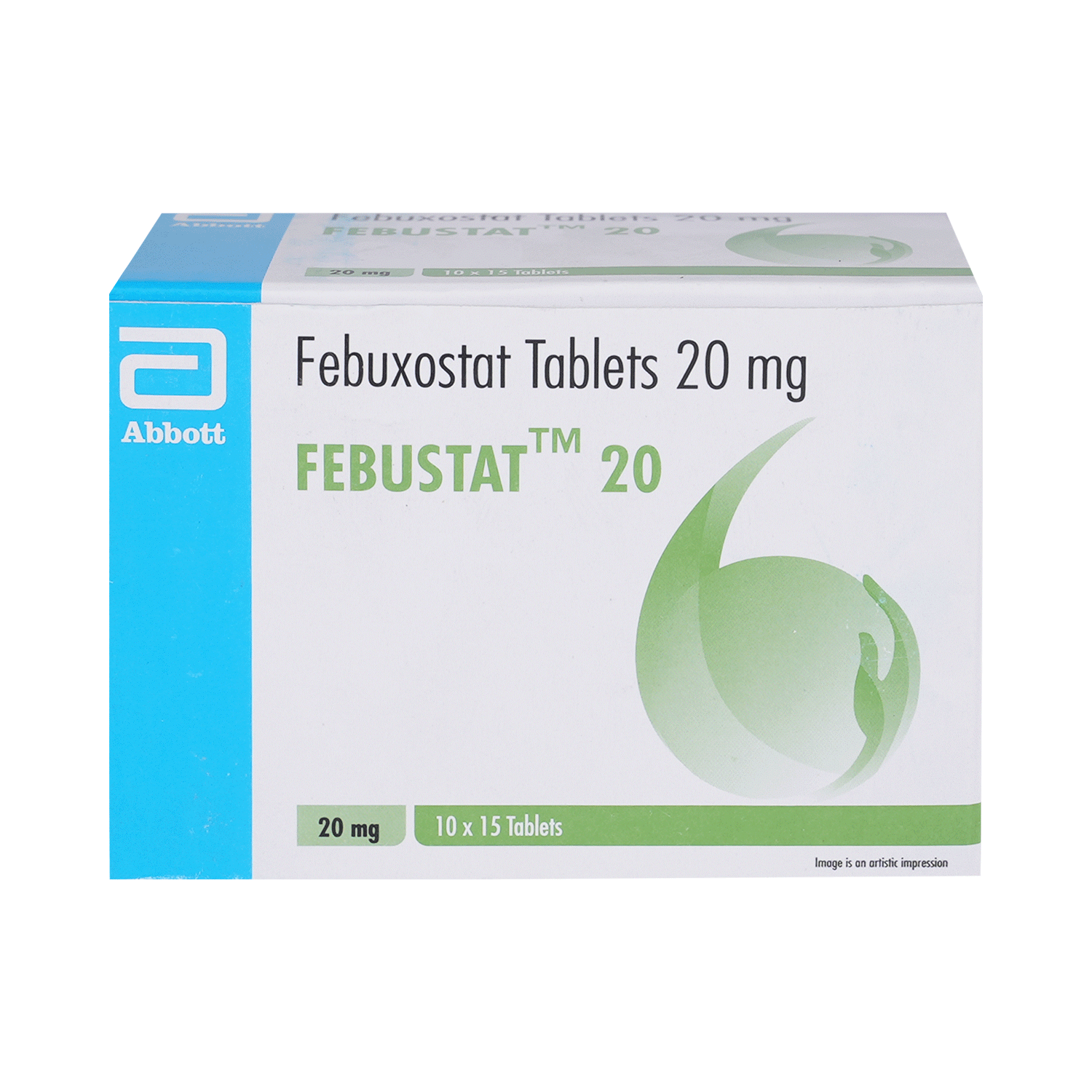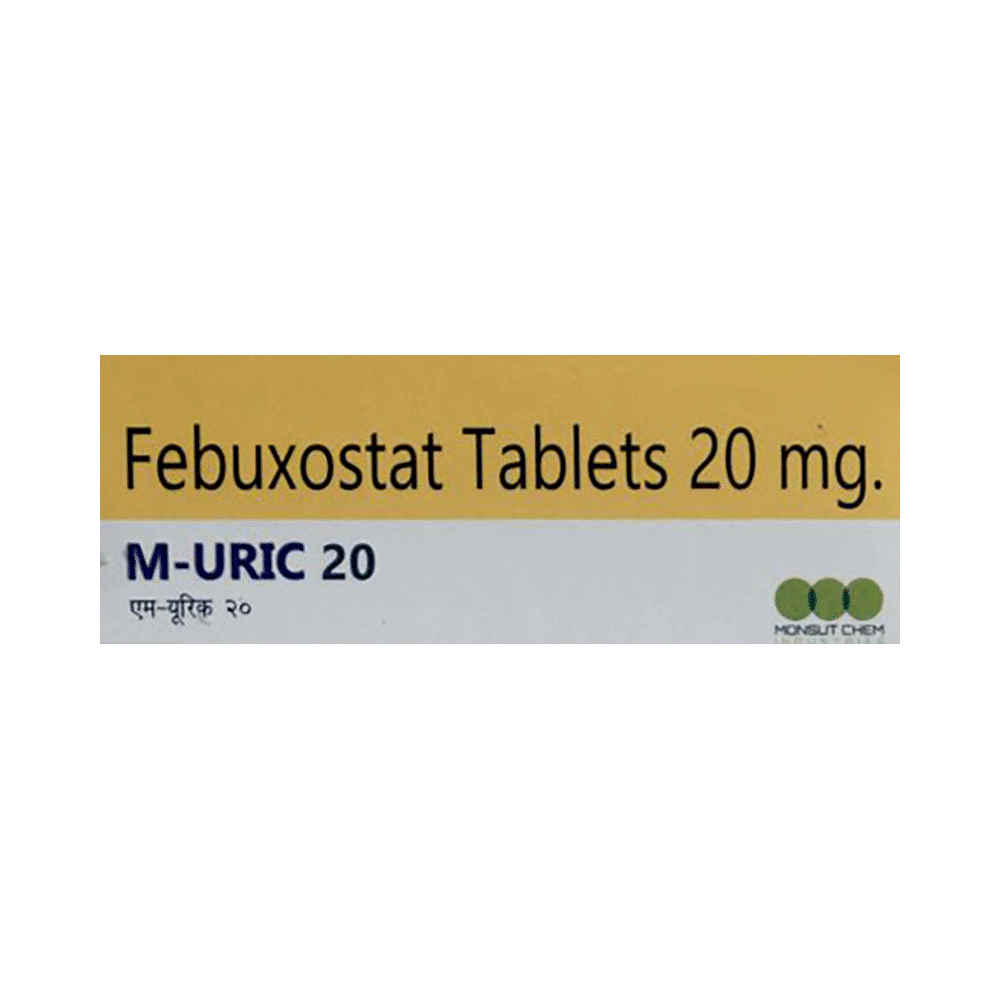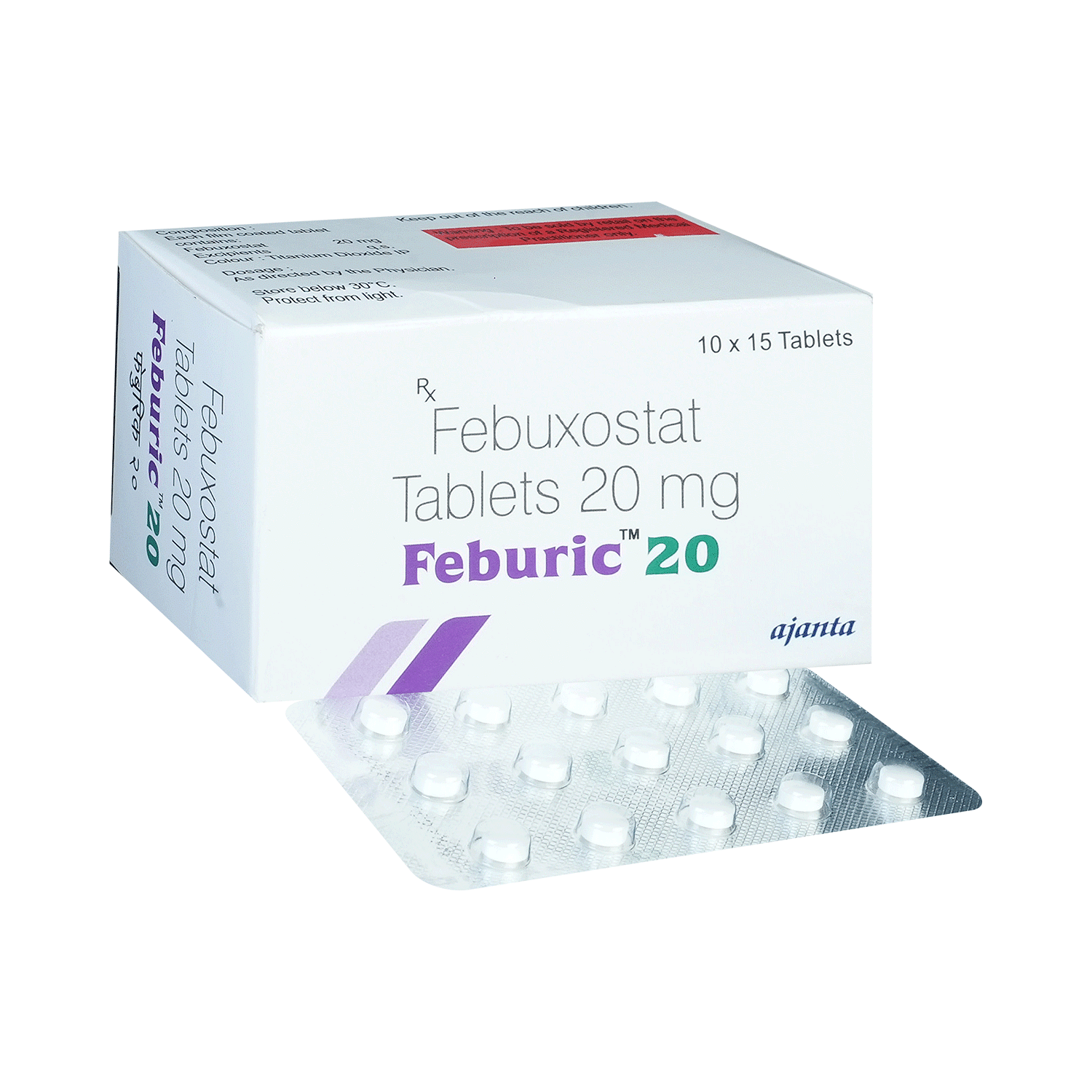
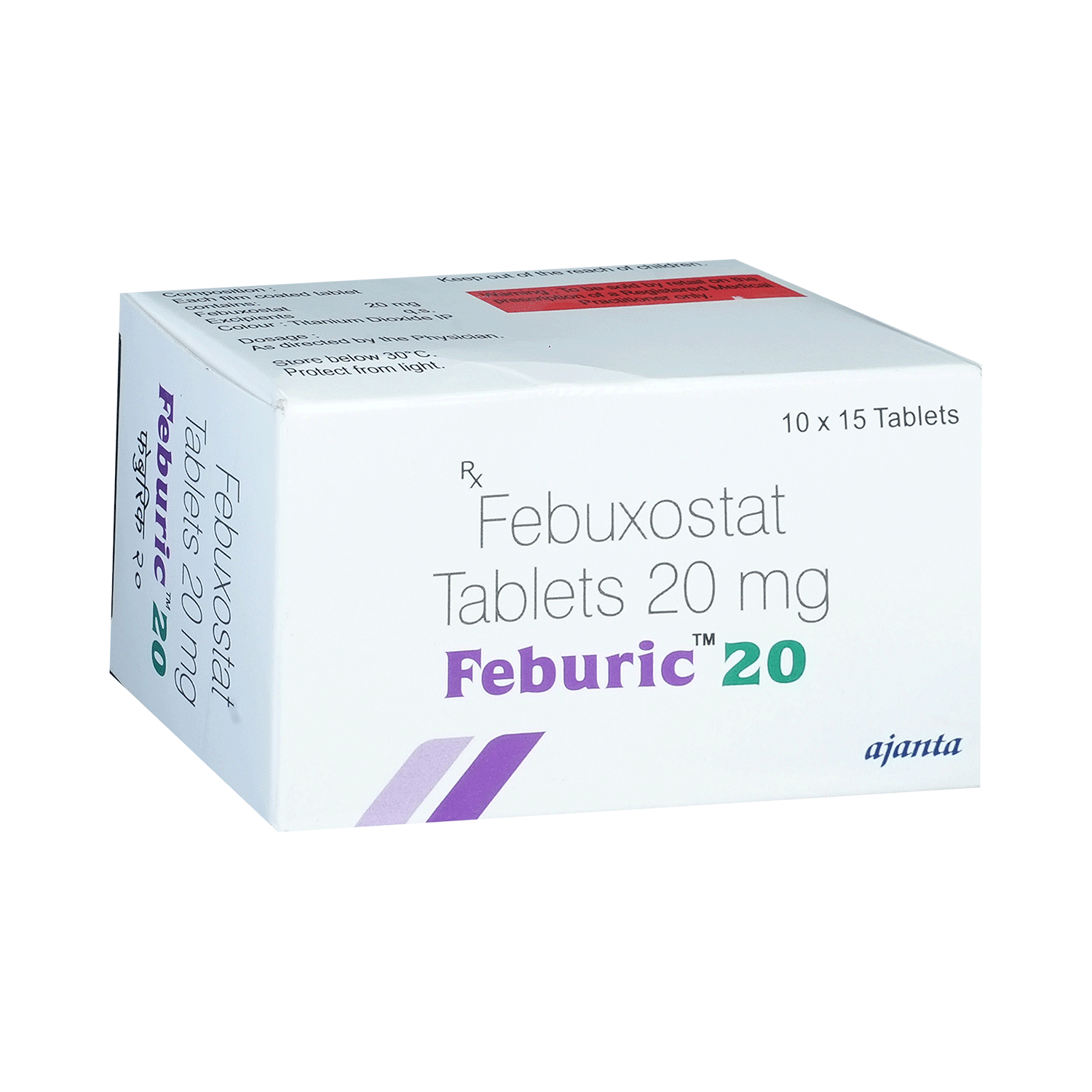
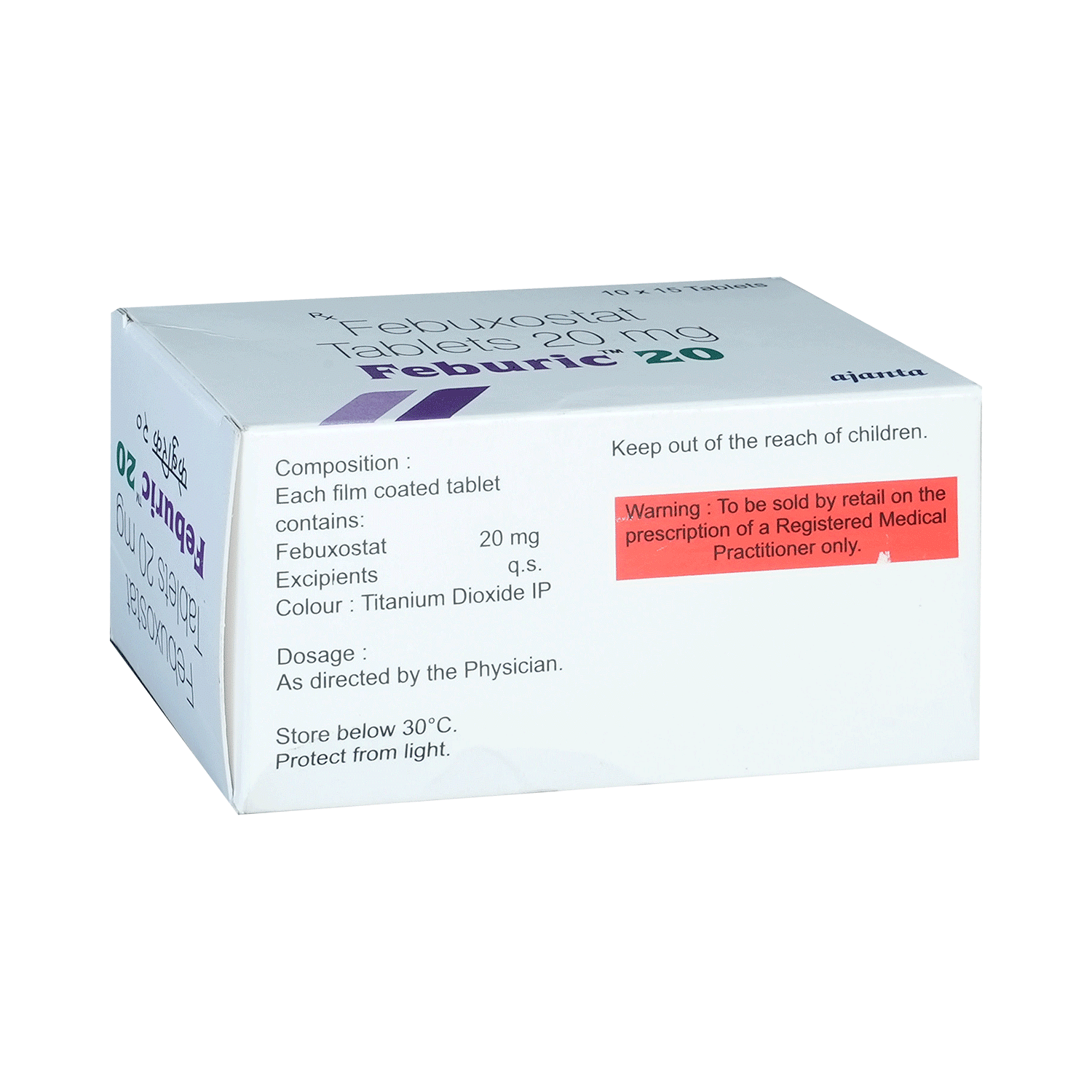
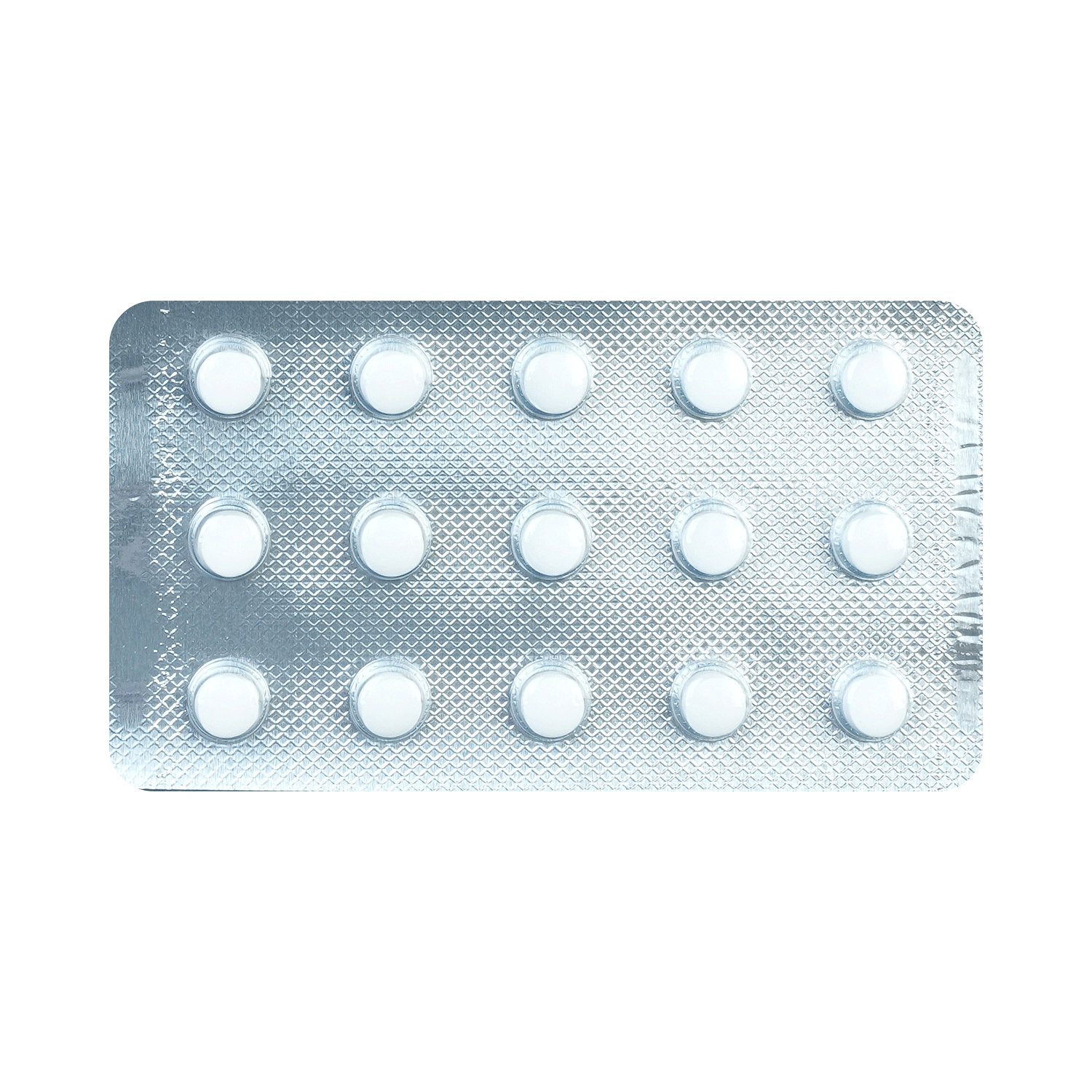
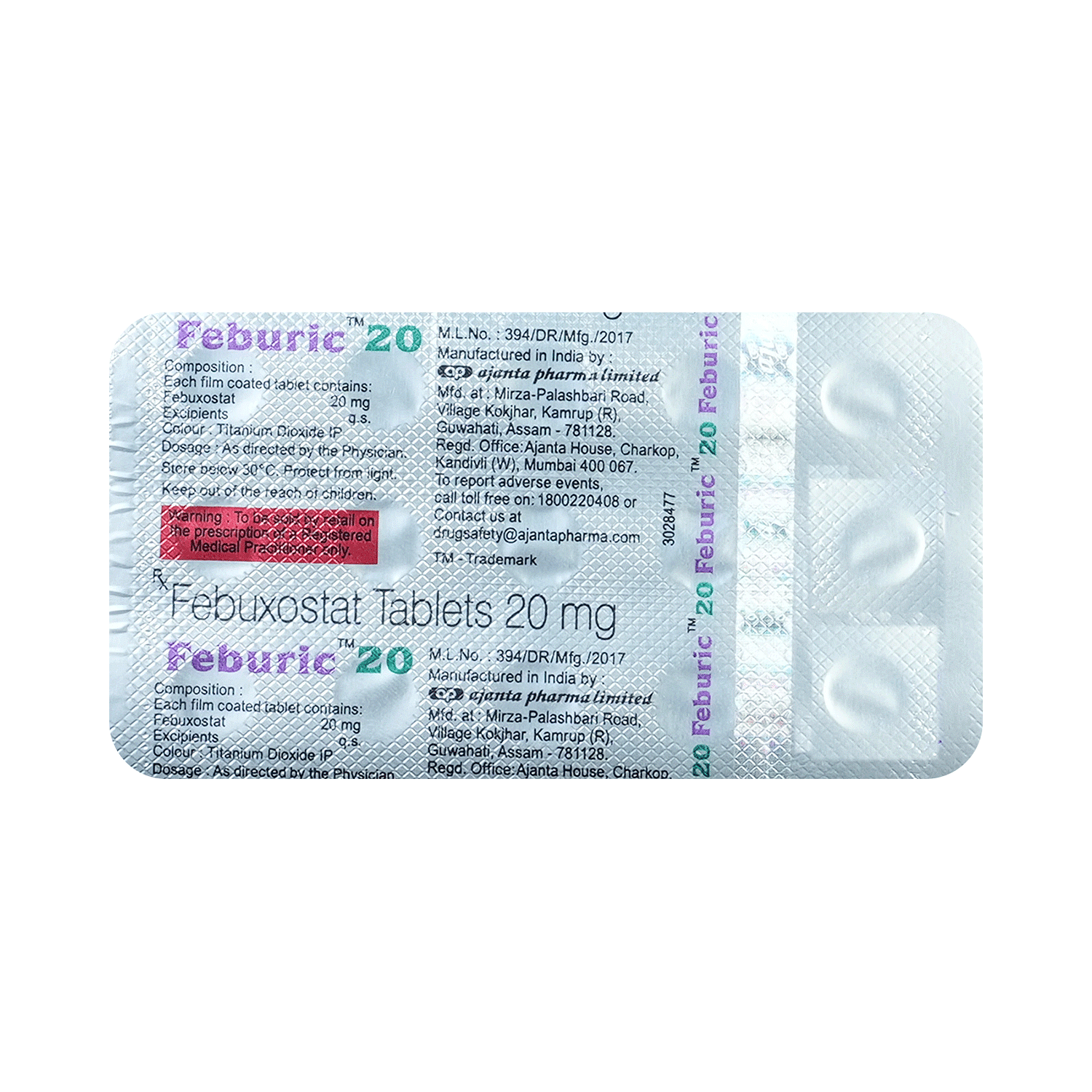
Feburic 20 Tablet
Manufacturer
Ajanta Pharma Ltd
Salt Composition
Febuxostat (20mg)
Key Information
Short Description
Feburic 20 Tablet is a medicine used to treat and prevent gout by keeping uric acid levels low.
Dosage Form
Tablet
Introduction
Feburic 20 Tablet is a medicine used to treat and prevent gout. Gout happens when there is too much uric acid in your body and it forms into crystals that can appear around your joints leading to painful and swollen joints. This medicine helps to keep uric acid levels low.
Directions for Use
Take this medicine in the dose and duration as advised by your doctor. Swallow it as a whole. Do not chew, crush or break it. Feburic 20 Tablet may be taken with or without food but it is better to take it at a fixed time.
Safety Information
Side Effects
No common side effects listed.
Alcohol Warning
Caution is advised when consuming alcohol with Feburic 20 Tablet. Please consult your doctor.
Breastfeeding Warning
Feburic 20 Tablet is probably unsafe to use during breastfeeding. Limited human data suggests that the drug may pass into the breastmilk and harm the baby.
Pregnancy Warning
Feburic 20 Tablet may be unsafe to use during pregnancy. Although there are limited studies in humans, animal studies have shown harmful effects on the developing baby. Your doctor will weigh the benefits and any potential risks before prescribing it to you. Please consult your doctor.
How it works
Feburic 20 Tablet is a xanthine oxidase inhibitor. It works by decreasing blood uric acid which is the chemical that causes gout.
Quick Tips
Take it at the same time every day Take plenty of fluids (2-3 litres) daily while on Feburic 20 Tablet. Do not stop Feburic 20 Tablet on having an acute attack of gout as that could make an attack worse. Do not consume alcohol while taking this medicine as it may cause your gout to flare up. Stop taking this medicine and inform your doctor straight away if you have symptoms like rash, itchiness, difficulties in breathing, fever, or swelling of limbs or face.
Related Medicines
Frequently asked questions
What is Feburic 20 Tablet used for?
Feburic 20 Tablet is prescribed to treat gout in adults. It is primarily used when allopurinol, another treatment option, has not been effective or if the patient cannot take it.
What are the side effects of Feburic 20 Tablet?
Feburic 20 Tablet can cause common side effects such as abnormal liver test results, diarrhea, headache, rash, nausea, and even fluid retention causing localized swelling in tissues. Serious side effects of Feburic 20 Tablet may include heart problems, worsening gout attacks, liver issues, and severe skin or allergic reactions. Seek immediate medical attention if experiencing any serious side effects.
How long should I take Feburic 20 Tablet?
The duration of Feburic 20 Tablet treatment varies depending on the individual and doctor's recommendations. It may take several months to prevent gout attacks effectively. Do not discontinue this medication without consulting your doctor, even if you feel better.
What is the best time to take Feburic 20 Tablet?
Feburic 20 Tablet is typically taken once a day. It can be taken at any time of the day, but it is recommended to choose the same time each day for consistency.
Can Feburic 20 Tablet cause kidney damage?
Feburic 20 Tablet may have a potential impact on kidneys in some cases, although this is relatively uncommon. Possible side effects include blood in the urine, increased urination frequency, kidney stones, abnormal urine tests (elevated protein levels), and a decline in kidney function. Rarely, it could lead to reduced urine volume due to inflammation of the kidneys (tubulointerstitial nephritis). Consult your doctor if your kidney function further deteriorates.
Can I stop taking Feburic 20 Tablet on my own if I am fine and have no pain or swelling in joints?
No, do not discontinue Feburic 20 Tablet without your doctor's advice. Stopping medication abruptly could increase uric acid levels, potentially worsening symptoms by promoting the formation of urate crystals within the joints and kidneys.
What are the things which I need to know while taking Feburic 20 Tablet?
You must be aware that Feburic 20 Tablet can cause serious heart problems. These may include chest pain, shortness of breath, difficulty breathing, dizziness, fainting, or feeling light-headed. Rapid or irregular heartbeat, numbness or weakness in one side of the body, slurred speech, sudden blurred vision, or severe headaches are additional warning signs. If experiencing any of these symptoms, immediately seek medical help.
Can Feburic 20 Tablet cause liver problems?
Yes, Feburic 20 Tablet may lead to liver issues. It is recommended that your doctor perform regular blood tests before and during treatment to assess the liver's function. Inform your doctor if you notice symptoms such as fatigue, pain, tenderness on the right side of your abdomen, loss of appetite lasting several days or longer, changes in urine color (dark or tea-colored), yellow skin or whites of eyes (jaundice).



